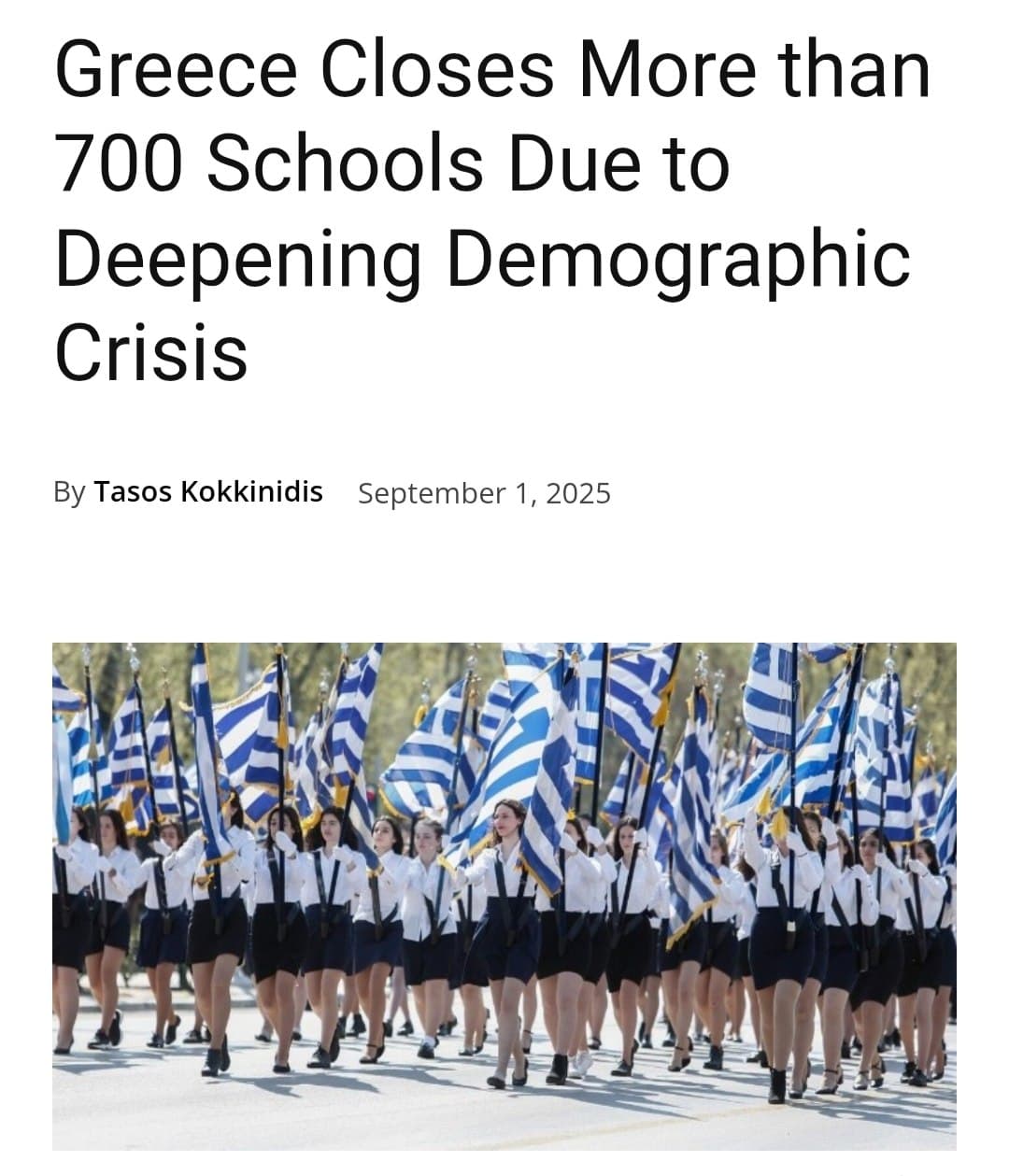Greece has shut down more than 700 schools as of today, September 1, 2025, in response to a deepening demographic crisis affecting the nation. The closures come as the government grapples with plummeting birth rates and a significant decline in school-age children.
This drastic measure affects approximately 20% of primary and secondary educational institutions across the country. Officials cite a combination of factors, including economic challenges and emigration, which have led to a shrinking population. The closures, announced by the Ministry of Education, are intended to reallocate resources and optimize the educational infrastructure.
In recent years, Greece has seen a sharp decline in its birth rate, falling to the lowest levels in Europe. According to statistics, the number of births in 2024 was nearly half of what it was two decades ago. The situation has prompted discussions on how to address the underlying issues contributing to the demographic decline, including economic instability and youth migration.
As the government implements these closures, the long-term impact on education and local communities remains uncertain. Many parents and educators are concerned about the implications for students, including increased travel distances to remaining schools. This situation mirrors other recent developments worldwide, such as recent developments in political pressures faced by nations adapting to demographic changes.




![[Video] U.S. Education Secretary Linda McMahon addresses antisemitism and DEI in universities](/_next/image?url=%2Fapi%2Fimage%2Fthumbnails%2Fthumbnail-1764701456714-dldg8o-thumbnail.jpg&w=3840&q=75)


![[Video] Gunfire between Iraqi security forces and Sadr militias in Baghdad](/_next/image?url=%2Fapi%2Fimage%2Fthumbnails%2Fthumbnail-1768343508874-4redb-thumbnail.jpg&w=3840&q=75)
